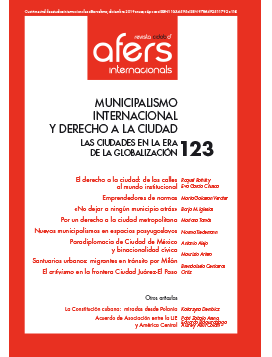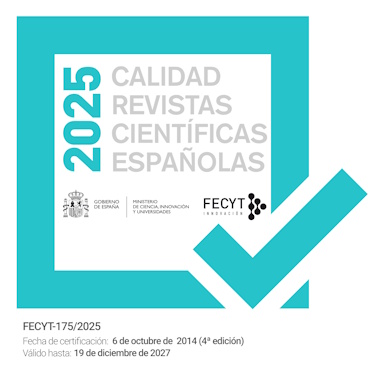Constitutional reflections of transformation in Cuba: a view from Poland
Keywords:
Cuba, constitution, transformation, socioeconomic uncertainties, theoretical debate, eastern Europe, PolandAbstract
Revista CIDOB d’Afers Internacionals, nº 123
Quadrimestral (October-December 2019)
ISSN:1133-6595 | E-ISSN:2013-035X
DOI: doi.org/10.24241/rcai.2019.123.3.203
Cuba's new Fundamental Law, passed on February 24th 2019, is considered the next step in the structural changes that have taken place in the country. These changes create uncertainties, increase social vulnerability and highlight spaces subject to greater risks. This paper forms part of the current debate on Cuba’s transformation, based on knowledge of its socioeconomic reality and the thinking of Poland's “transitology” school. The text of the country's new constitution is analysed through this comparison. Based on the conviction that individual and collective actions in Cuban society increase the unpredictability of the process of change, this paper aims to suggest that the text of the new constitution manifests the imponderables of the Cuban transformation.
>> The full text articles of this issue are available only in Spanish language
References
Barboza Lizano, Óscar y Dembicz, Katarzyna. «Enviromental Cuba versus Economic Transformation». Europa xxi, n.° 32 (2017), p. 21–36.
Beyme, Klaus von. Transiction to democracy in Eastern Europe. Nueva York: St. Martin’s Press, 2005 (en línea) [Fecha de consulta: 15.04.2019] https://books.google.pl/books?hl=pl&lr=&id=gFqCDAAAQBAJ&oi=fnd&pg=PP1&dq=von+beyme+transition+systems&ots=lik7K_dp86&sig=kmBnzy2E1
G2V0kypk8nTz0fLA3w&redir_esc=y#v=onepage&q=von%20beyme%20transition%20systems&f=false
Bönker, Frank; Müller, Klaus y Pickel, Andreas (eds.) Postcommunist tranformation and the social sciences. Crossdisciplinary approaches. Oxford: Rowman & Littlefield Publishers, 2003.
Constitución de la República de Cuba, 1976. La Habana: Editorial Mayor Gral. I. Agramonte y Loynaz, 2014.
Constitución de la República de Cuba, 2019. La Habana: Impresa de Artes Gráficas Federico Engels, 2019.
Dahrendorf, Ralf. Reflections on the resolution in Europe. Nueva York: Times Books, 1991.
Dembicz, Katarzyna. PosCuba. Lo imponderable de la transformación insular. Madrid: Hypermedia, 2016.
Ekiert, Grzegorz. «Prawidłowości transformacji w Europie Wschodniej». En: Justyna, Miklaszewska (ed.). Demokracja w Europie Środkowej, 1989–1999.
Studia historyczne i porównawcze. Cracovia: Instytut Studiów Strategicznych, 2001, p. 18–27.
Hałas, Elżbieta. «Transformacja w wyobraźni zbiorowej». En: Sztompka, Piotr (ed.). Imponderabilia wielkiej zmiany. Mentalność, wartości i więzi społeczne wielkiej zmiany. Varsovia y Cracorvia: PWN, 1999, p. 69–88.
Hansing, Katrin y Optenhögel, Uwe. «Cuba: las desigualdades se tornan visibles. Consecuencias de la ekonoma de escasez y reformas». Nueva sociedad, no.º 255 (enero–febrero 2015).
Iñiguez Rojas Luisa; Rojas Martínez, Janet y Oliveros Blet, Arnold. «Las reconfiguraciones espaciales en la Cuba actual». En: Dembicz, Katarzyna (ed.). ¿Cuba: quo vadis? Varsovia: CESLA, 2013, p. 39–56.
IPS – Inter Press Service en Cuba. «¿Qué trascendió durante la consulta del proyecto constitucional cubano?». Inter Press Service en Cuba, (16 de noviembre de 2018) (en línea) [Fecha de consulta: 03.01.2019] https://www.ipscuba.net/politica/que–trascendio–durante–la–consulta–del–proyecto–constitucional–cubano/Jałowiecki, Bohdan. Społeczne wytwarzanie przestrzeni. Varsovia: KiW, 1988
Jarosz, Maria (ed.). Wygrani i przegrani polskiej transformacji. Varsovia: PAN Oficyna Naukowa, 2005.
Kieżun, Witold. Patologia transformacji. Varsovia: Poltext, 2013.
Kukliński, Antoni. «Transformacja w Europie Środkowej – priorytetowe zagadnienia badawcze». En: Jałowiecki, Bohdan (ed.). Współczesne problemy rozwoju regionalnego. Varsovia: Wydawnictwa Europejskiego Instytutu Rozwoju Regionalnego i Lokalnego, 1995, p. 7–20.
Mach, Bogdan. Transformacja ustrojowa a mentalne dziedzictwo socjalizmu. Varsovia: Instytut Studiów Politycznych PAN, 1998.
Mieczkowska, Małgorzata. «Transformacja czy tranzycja. Szkice definicyjne». Acta Politica, n.° 30 (2014), p. 71–80.
Offe, Claus. Varieties of Transition. Cambridge: Polity Press, 1996.
Offe, Claus. «Capitalism by Democratic Design? Democratic Theory Facing the Triple Transition in East Central Europe». Social Research, vol. 71; n.° 3 (2004), p. 501–528.
Peters, Yvette y Tatham, Michaël (eds.). Democratic transformations in Europe. Challenges and Opportunities. Londres y Nueva York: Routledge, 2016.
Pickel, Andreas. «Transformation theory: scientific or political?». Communist and Post–Communist Studies, n.° 35 (2002), p. 105–114.
Polanyi, Karl. La Gran Transformación. Madrid: Ediciones La Piqueta, 1989.
Popper, Karl. La miseria del historicismo. Madrid: Taurus Ediciones, 1987.
Przeworski, Adam. Democracy and the Market: Political and Economic Reforms in Eastern Europe and Latin America. Cambridge: Cambridge University Press, 1991.
Safjan, Marek. Prawa Polska. Varsovia: Rosner & Wspólnicy, 2005.
Saladrigas, Carlos. «Cuba: economía, diáspora, transición». En: Miyares, Marcelino (ed.). Cambios en Cuba 2012. Ciudad de México: KAS, 2012, p. 147–154.
Schmitter, Philippe y Karl, Terry Lynn. «The Conceptual Travels of Transitologists and Consolidologists: How Far to the East ShouldThey Attempt to Go?». Slavic Review, vol. 53, n.° 1 (1994), p. 173–185.
Sztompka, Piotr. Socjologia zmian społecznych. Cracovia: Znak, 2007.
The World Bank. «World Development Report 2002. Building Institutions for Markets». The World Bank, 2002 (en línea) [Fecha de consulta: 07.12.2018] https://openknowledge.worldbank.org/handle/10986/5984
Triana Cordovi, Juan. «Cuba: un balance de la transformación». Economía y Desarrollo, vol. 151, n.° 1 (2014), p. 12–29.
Welp, Yanina. «Cuba ¿Otra vez sopa?». El País. Agenda Pública, (21 de febrero de 2019) (en línea) [Fecha de consulta: 18.07.2019] http://agendapublica.elpais.com/cuba–otra–vez–sopa/
Wnuk–Lipiński, Edmund. Socjologiażycia publicznego. Varsocia: Wydawnictwo Scholar, 2008.













